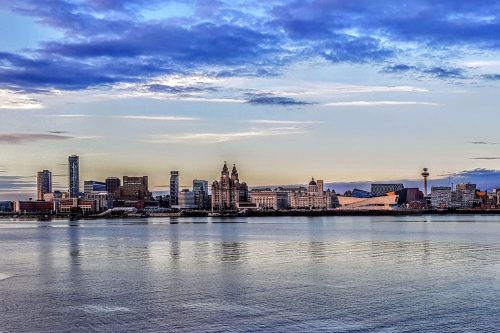Panel publishes initial blueprint to drive Liverpool’s economic growth

Three targets to turbo charge Liverpool’s future have been set by the panel tasked with supporting the city’s long-term future beyond government intervention measures.
Government commissioners were installed within the council in June 2021, to improve the running of the local authority following publication of the Max Caller report in March that year into how the council was being run following the arrest of five people linked to Operation Aloft Police investigations.
The Liverpool Strategic Futures Advisory Panel, chaired by Liverpool City Region Mayor Steve Rotheram, has now released its initial findings today (November 28) at the University of Liverpool’s Vice-Chancellor’s Conference which will examine how best to create a more successful Liverpool.
After six months of engagement with more than 300 stakeholders, the panel has developed the outline of a reform agenda to accelerate the city’s progress towards a stronger and more sustainable future.
Three broad priorities have been identified for Liverpool over the next 10 years as, rebooting Liverpool’s regeneration, 21st century public service reform, and turbocharging the innovation economy.
The report recommends initial proposals to transform these areas:
- Establishing a regeneration partnership to kickstart stalled projects and rejuvenate regeneration in the city.
- Piloting an integrated, data-led approach to service delivery focused on multiple complex needs, with the potential to establish a first of its kind Office for Public Service Innovation in the city region.
- Ensuring the region capitalises on its strengths in life sciences, using the Investment Zone status to accelerate growth in the Knowledge Quarter and spread its benefits more widely.
The panel believes these priorities should form the basis of Liverpool’s economic strategy in the coming decade, and the outcomes used to measure its success will be set out in the panel’s final report.
Steve Rotheram said: “This report is a culmination of months of engagement and evidence gathering with the people who know our area best. Those discussions gave us a much clearer picture of the direction local people believe the city is going in, and the areas where we need to steer the ship to keep things heading in the right direction.
“This report doesn’t claim to have all the answers, it’s just part of the solution to the puzzle to revitalising Liverpool’s economy. At this stage, our priority is planting the seeds for leadership and supporting sustainable growth for the long term, some of which we have already seen with new leadership at the council.”
He added: “Liverpool has all the ingredients of a fantastic, truly global city. Through the panel’s work, we want to help the city seize the major opportunities that lie ahead and and ensuring that all our residents can share in the benefits this will bring.”
Taking stock of where the city sits today, the report states: “Liverpool is rightly regarded as one of Britain’s most dynamic and distinctive cities… yet economically, [it] punches below its weight.”
The interim report provides an in-depth analysis of Liverpool’s economy today, listing strengths like Liverpool’s tourism appeal, growing student population, and emerging strengths in areas like life sciences, advanced manufacturing, digital and culture.
However, weaknesses remain – productivity lags behind the national average, earnings are lower, and there is an over-reliance on low productivity sectors. It estimates £4.5bn per year could be added to Liverpool’s economy by raising productivity levels to the UK average.
Leader of Liverpool City Council, Cllr Liam Robinson, said: “I am pleased to support this report, which outlines the huge opportunities for Liverpool. Working in partnership with the Liverpool City Region Combined Authority, other stakeholders and businesses, we are absolutely committed to doing everything we can to improve our city.
“In recent decades, there have been great strides in making Liverpool a fantastic place to live, work and visit. Now is the time to accelerate our work, moving it to the next level, making sure we deliver for all of our residents.”
The report has been approved by the Secretary of State for Levelling Up, Housing and Communities (DLUHC), Michael Gove.
Mayor Rotheram is joined on the panel by two major local government figures, Baroness Judith Blake, the leader of Leeds City Council from 2015 to 2021 and Sir Howard Bernstein, who was chief executive of Manchester City Council from 1999 to 2017.
They have worked with Liverpool City Council and its Cabinet, officers at the Liverpool City Region Combined Authority, external experts, and stakeholders to deliver a long term masterplan for the growth and success of the city.
Further detail of this reform agenda, and delivery milestones, will be the focus of the panel’s final growth strategy report in 2024.








